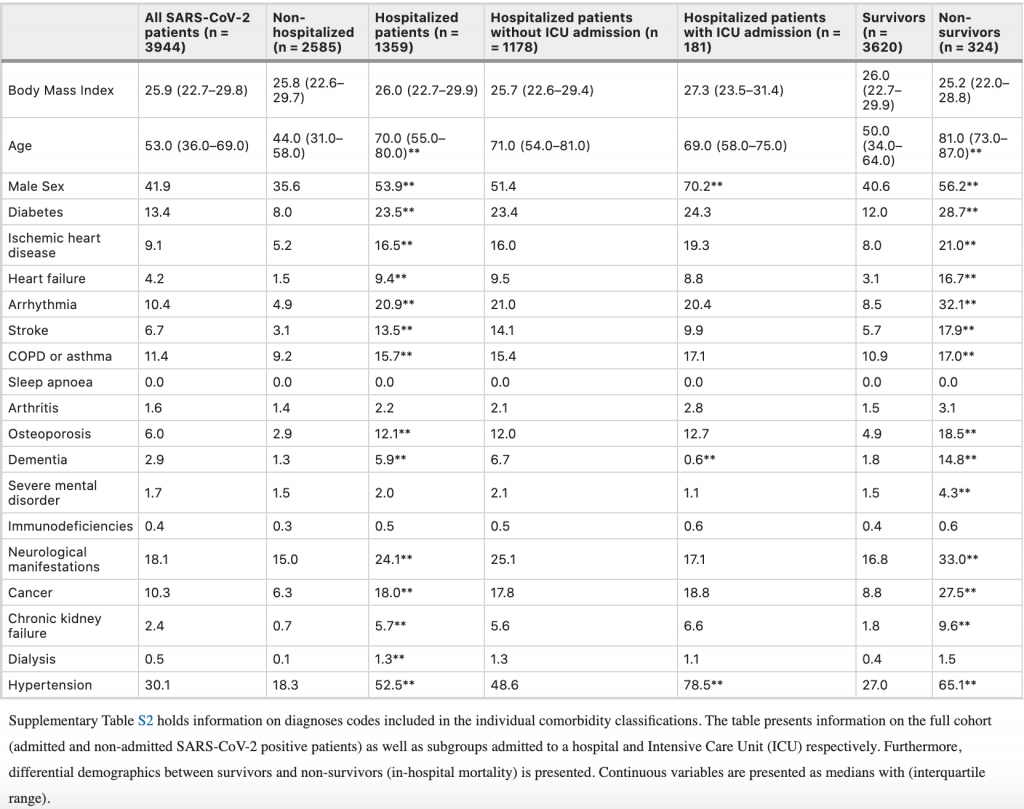
Danish researchers used AI to predict COVID-related complications with great accuracy. (Source: University of Copenhagen)
Copenhagen Researchers Find 90% Accuracy in COVID-19 Health Predictions
Of all the businesses that AI has invaded or become an invaluable part of, one business perhaps not thought of originally is fortune-telling. Well, that is no longer completely true. And, it’s not the crystal ball fortune-telling we are talking about. It is really more like analyzing data and predicting who will have problems with contracting Covid -19.
A story on thenextweb.com refers to an AI analysis of 5,594 COVID patients and their outcomes. Scientists from the University of Copenhagen used an AI tool that predicted with 90% accuracy who would die from COVID-19.
The researchers fed the system health data from almost 4,000 COVID-19 patients in Denmark to train it to find patterns in their medical histories. The tool determined whether an uninfected person who later caught the virus would die from complications.
It also predicted with 80% accuracy whether someone who was admitted to the hospital with COVID-19 would need a respirator.
Professor Mads Nielsen of the University of Copenhagen said the tool could help identify who to prioritize for vaccines and how many respirators a hospital will need:
“We are working towards a goal that we should be able to predict the need for respirators five days ahead by giving the computer access to health data on all COVID positives in the region. The computer will never be able to replace a doctor’s assessment, but it can help doctors and hospitals see many COVID-19 infected patients at once and set ongoing priorities.”
The system also analyzed which health factors would likely lead a COVID-19 patient to die or need a respirator.

A microscopic image of the SARS-CoV-2 virus. (Source: CDC)
Indicators Include Body Mass Index, Age
Unsurprisingly, BMI and age were the most decisive indicators. But the study also showed that males and people with high blood pressure or a neurological disease had an elevated risk.
The next most influential health factors were having chronic obstructive pulmonary disease (COPD), asthma, diabetes and heart disease.
“For those affected by one or more of these parameters, we have found that it may make sense to move them up in the vaccine queue, to avoid any risk of them becoming infected and eventually ending up on a respirator,” said Nielsen.
The research paper can be found in the journal Nature.
read more at thenextweb.com







Leave A Comment